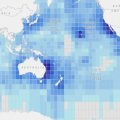
Women who gain excessive weight during pregnancy are more likely to be overweight or obese 21 years after giving birth, UQ research has found.
Led by Dr Abdullah Mamun, from UQ's School of Population Health, the study is published in the latest edition of the American Journal of Clinical Nutrition.
"Weight gain during pregnancy independently predicts the long-term weight gain and obesity of women," Dr Mamun said.
"We knew maternal weight gain during pregnancy led to obesity in short and median term but we did not know whether it had long-term impact
"Our study found that the excess weight gain in pregnancy has profound long lasting impact on future development of obesity."
The research drew upon data from the Mater-University Study of Pregnancy (MUSP) - a longitudinal study of more than 7000 mothers and their children born at Brisbane's Mater Hospital during 1981-83.
The database held records of women's weight before pregnancy and maximum weight gain before they gave birth, allowing researchers to calculate the amount of weight gained during the gestation period.
Of the 2026 women included in the study, 33 percent gained excessive weight, 41 percent gained adequate weight and 26 percent gained inadequate weight during pregnancy.
The average weight gain for mothers participating in the study was 14.7kg, about 400 grams per week.
"The women who gained excess weight during pregnancy were 4.5 more likely to be obese 21 years later," Dr Mamun said.
"Women who gained excess weight during pregnancy were, on average, 20.4kg heavier 21 years after giving birth."
Factors including maternal age, prepregnancy body mass index, the mother's level of education, smoking habits, television watching, hypertensive disorder, diabetes, method of delivery, duration of breastfeeding and menopausal status were taken into consideration, but did not alter the results.
"These findings suggest that gestational weight gain is an independent predictor of future weight development, even two decades after the index pregnancy," Dr Mamun said.
Co-author Associate Professor Leonie Callaway, from the School of Medicine, said, however, women who gained excessive weight might be metabolically prone to this, and even without a pregnancy, might have ended up gaining weight at a quicker rate over time.
"At present, there is a paucity of data about what happens over the long term if we intervene with pregnancy weight gain," she said.
"For example, if we limit pregnancy weight gain through some sort of pregnancy intervention, does that prevent women from having higher BMIs in their middle age?
"There is currently a major trial looking at limiting weight gain underway in Adelaide.
"It is not known whether this intervention will limit pregnancy weight gain, and in addition, women in this study will need longitudinal follow up to see whether pregnancy interventions can have any long term impact."
Dr Mamun said increased awareness and education about the implications of weight gain during pregnancy were required.
"Given the strong association with future obesity, it is important to understand what differentiates these women from those who are able to maintain weight gain within the guidelines," he said.
"Given the association between excess gestational weight gain and long-term obesity, there is an urgent need for high quality randomised controlled trials regarding interventions to limit excess pregnancy weight gain.
"Clinicians may encourage women to lose pregnancy weight by six months postpartum; however this need to be done judiciously, as rapid weight loss may affect breast feeding practices."
The article is available online.
Other authors included Mansey Kinarivala, Michael O'Callaghan and Gail Williams and Jake Najman.
Previous research led by Dr Mamun found children whose mothers gained excessive weight during pregnancy were more likely to be obese when they reached adulthood.
Media: Dr Mamun (07 3346 4689, mamun@sph.uq.edu.au) or Penny Robinson at UQ Communications (07 3365 9723, penny.robinson@uq.edu.au)
.jpg)









